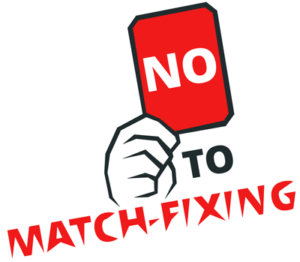Football Match Fixing and Betting Scandals
 For as long as betting has existed as a form of entertainment, there have been people trying to cheat the system. In some cases that has involved convoluted plots to con a casino, say, or cheat bookmakers by doing something like swap a rubbish horse for a similar looking one that is more talented. Those sorts of things aren’t easy to do by any stretch of the imagination but they often involve reasonably small groups of people, meaning that the breadth of the conspiracy isn’t huge. Yet when it comes to ‘fixing’ the results of football matches, there’s potentially a huge number of people that need to be involved in order to pull it off. Irrespective of that, football matches have been just as susceptible as any other sporting event for corruption and match fixing over the years.
For as long as betting has existed as a form of entertainment, there have been people trying to cheat the system. In some cases that has involved convoluted plots to con a casino, say, or cheat bookmakers by doing something like swap a rubbish horse for a similar looking one that is more talented. Those sorts of things aren’t easy to do by any stretch of the imagination but they often involve reasonably small groups of people, meaning that the breadth of the conspiracy isn’t huge. Yet when it comes to ‘fixing’ the results of football matches, there’s potentially a huge number of people that need to be involved in order to pull it off. Irrespective of that, football matches have been just as susceptible as any other sporting event for corruption and match fixing over the years.
Here we’ll have a look at some examples of match fixing over the years, going back to when the sport first became part of the popular conscience. It’s not just a modern invention, after all. Has match fixing always involved the entire team, or are there examples of when just a couple of people have been involved in some smaller incidents? What policy do bookmakers have about matches that are revealed to have been fixed or seem to have suspicious activity around them? Perhaps most importantly of all, what happens to the people found guilty of match fixing? Is it just a matter for the organisations in charge of the competition the fixing occurs in, or is a bit more serious than that? We’ll have a look at answering those questions during this article, attempting to unravel the world of match fixing in football.
High-Profile Football Match Fixing Incidents
There have been more than a few incidents of match fixing over the years, with the occurrence not limited to just one country. Here’s a quick look at each of the most high-profile ones, which might whet your appetite to find out a bit more about them:
The 1915 Betting Scandal
 This particular scandal is noteworthy for who took part in it as much as what happened. In 1915 Liverpool went up against Manchester United, with the latter threatened with relegation. The match appeared suspicious because of the lack of effort from Liverpool’s players, with the Red Devils winning the game 2-0. Handbills began to appear in the wake of the game that appeared to show large amounts of money having been bet on the very result that later transpired, which had odds of 7/1. The Football Association launched an investigation into the matter and three United players as well as four from Liverpool were found guilty of rigging the game.
This particular scandal is noteworthy for who took part in it as much as what happened. In 1915 Liverpool went up against Manchester United, with the latter threatened with relegation. The match appeared suspicious because of the lack of effort from Liverpool’s players, with the Red Devils winning the game 2-0. Handbills began to appear in the wake of the game that appeared to show large amounts of money having been bet on the very result that later transpired, which had odds of 7/1. The Football Association launched an investigation into the matter and three United players as well as four from Liverpool were found guilty of rigging the game.
Interestingly, there was obviously a discussion between the conspirators and the rest of the Liverpool and Manchester United teams because both Fred Pagnam from the Liverpool side and and United’s George Anderson were against the idea. Pangam himself told his teammates that he wouldn’t be doing anything to help them get their desired result, striking the crossbar late on in the game and getting a public telling off from the conspirators in his team. Pangam testified against the conspirators to the FA, with all seven players banned for life at a hearing on the 27th of December in 1915.
The 1964 British Betting Scandal
Back in the 1960s, a former Scottish youth international named Jimmy Gauld interfered with the results of Football League matches and enticed fellow players to do similar. He first became attracted to the idea when he discovered that Tranmere Rovers had paid some players from Mansfield Town, where he used to play, to lose a game. He spoke to a former colleague from Swindon Town, David Layne, and was informed that Layne’s then club, Sheffield Wednesday, was likely to lose an upcoming game to Ipswich Town. They approached Layne’s Wednesday teammates Peter Swan and Tony Kay and the three of them ‘ensured’ the loss.

It wasn’t just one match that Gauld and others fixed. On the same day they also had a hand in ensuring the result of the Lincoln City versus Brentford match and York City’s trip to Oldham Athletic. The match fixing continued over the next couple of years, eventually being uncovered by the tabloid paper the Sunday People. Gauld sold them his story in 1964 for the equivalent of about £150,000, selling out his co-conspirators from the Ipswich Town versus Sheffield Wednesday match. In the end he made about £75,000 from that match fixing, supplementing that with the money he earned from the Sunday People.
Italian Football Match Fixing Incidents
There have been several incidents of match fixing in Italian football, with the first being uncovered in 1980. It involved Milan, Lazio, Perugia, Bologna, Napoli, Avellino from the Italian top-flight Serie A, as well as Taranto and Palermo from Serie B. The scandal was discovered by the Guardia di Finanza when two Roman businessmen broke under interview and confessed that a selection of Italian players were open to ‘selling’ the results of matches in exchange for money. More than thirty players were involved, as well as numerous managers from some of the country’s biggest clubs. They weren’t particularly subtle, going to ‘Totonero’, or illegal bookmakers, to place their bets. Sometimes these were even against the teams that they played for, which was particularly hurtful to Italian football supporters.
Other scandals rocked Italian football after that, including another in 2000 and a further one still in 2004. Yet it was the 2006 revelation that giants of the game such as Juventus, Lazio, Milan and Fiorentina had been fixing results courtesy of favourable referees that genuinely shook the game. Juve were stripped of their 2005-2006 Serie A title before being relegated into Serie B, whilst Milan had to start their next campaign thirty points down on the other teams in the league. Known as the Calciopoli scandal, it saw club presidents receive a fine as well as a ban from the sport and one manager attempt to commit suicide. Fiorentina and Lazio, meanwhile, were kicked out of European competition as their punishment.
The 2005 Bundesliga Scandal
It’s not just Italian football that has come in for scrutiny in the past. Unlike with the scandal from Serie A and Serie B, however, German football’s match fixing involved a referee named Robert Hoyzer. He confessed that he had both fixed and then bet on matches from 2. Bundesliga, the second-tier of football in Germany, as well as the DFB-Pokal and the Regionalliga.
It was discovered when four of his refereeing colleagues, Lutz Michael Fröhlich, Olaf Blumenstein, Manuel Gräfe, and Felix Zwayer, approached the DFB and informed them that they were suspicious about what he was up to. It turned out that Hoyzer was linked to a Croatian gambling syndicate and after he confessed he cooperated in order to take several other people down with him.
What Happens To Those Guilty Of Match Fixing?
 To an extent, the answer to what happens after people have been found guilty of match fixing depends on the depth of the incident. Without question they will be punished by their own Football Association, with bans tending to be handed down to those that are found guilty of influencing the outcome of a match or matches.
To an extent, the answer to what happens after people have been found guilty of match fixing depends on the depth of the incident. Without question they will be punished by their own Football Association, with bans tending to be handed down to those that are found guilty of influencing the outcome of a match or matches.
Whether or not they also face legal consequences comes down to whether the incident is seen as a criminal conspiracy, though more often than not they are. For example, Robert Hoyzer, the referee involved in the German football scandal, was banned from the sport for life and sentenced to two years, five months in prison.
What Do Bookmakers Do When Matches Are Fixed?
Ironically, it is often the bookmakers that figure out something dodgy is going on when it comes to fixed matches. After all, companies don’t want to lose out on money and so sophisticated algorithms are in place to spot suspicious betting patterns. With experts suggesting that around three-hundred matches a season are ‘fixed’ across Europe’s biggest leagues, it’s important for them to get those algorithms right. Sometimes it’s not about the algorithm so much as it as about following the money, with one European match attracting suspicion when more than £1.5 million was bet on it and £50,000 would be a more usual amount for that sort of game.

If a match appears to be suspicious then bookmakers will initially suspend betting on, waiting for an investigation to take place. If it turns out that it was indexed fixed then they obviously will not pay out on winning bets, instead returning the stake to those that had a wager on it as a void bet. They’ll also report the incident to the authorities, with a company named Sportradar monitoring games for the likes of FIFA and UEFA on a regular basis. An employee of the company told 5 live Investigates that watching the odds of a game can give them a clue about what might happen. Speaking of one game in particular he said, “Usually an away team would have around a 30% chance of winning, but at the current odds this team is about 85% likely to win”.



